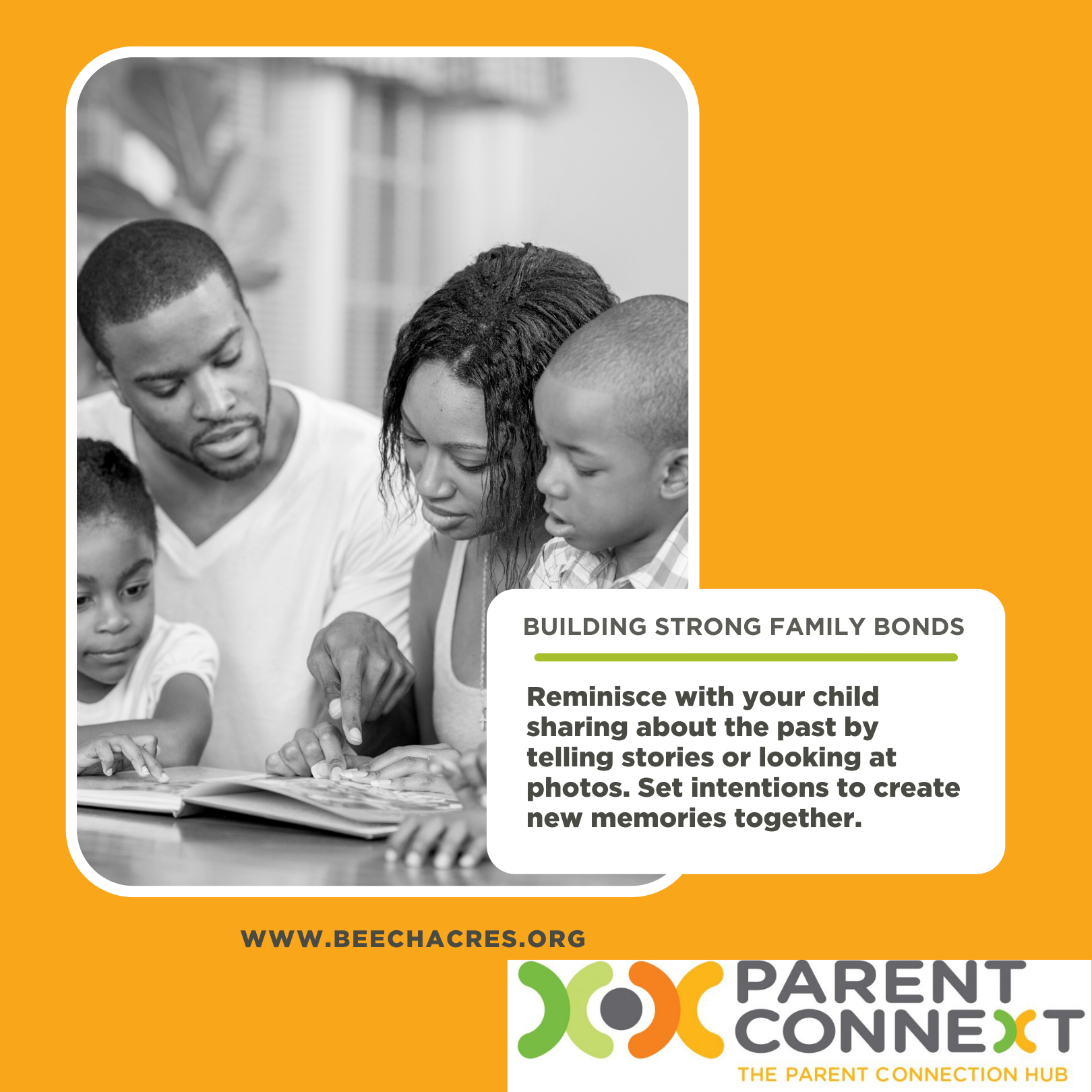Building Strong Family Bonds

Building Strong Family Bonds
We all long for close, loving relationships with our children. By being intentional and mindful, we can build strong bonds with our kids at any age.
Practice Empathy
What is Empathy?
Psychology Today defines empathy as “the ability to recognize, understand, and share the thoughts and feelings of another person…It involves experiencing another person’s point of view, rather than just one’s own.”
➢ When our children feel seen and heard, they feel better about themselves, can better regulate their emotions, and feel closer to us.
➢ When we don’t acknowledge our child’s feelings, these feelings don’t go away. They are still there and kids feel alone rather than supported.
➢ When we can allow space for our children to express and fully feel all of their emotions, the strong feelings can be handled by coaching your child to utilize self-regulation which is a life skill we want our kids to master.
➢ When our children know we will respond with empathy, they are more likely to come to us for support.
Keys to Building Strong Bonds
Respond to your Child’s Needs:
When your child is crying or calls for you, respond quickly, even if it is to let them know you heard them and that you are coming to them.
Make Reunions Count:
When you first see your child in the morning or after school, smile and give them your full attention for a few minutes. Take the time to say “good morning” or ask them about their day. Tell them how happy you are happy to see them.
Connect through Physical Touch:
Young children usually love to snuggle. As your kids get older, they still benefit from physical touch. Give your child hugs or a back rub if they are receptive.
Spend TIME IN:
Try to spend time with your child each day. Aim for at least 5 minutes of focused attention where your child is in charge of what you play or what you talk about.
Create Rituals:
Make some time to do enjoyable things together and try to do them regularly. Ideas- story time, family dinners, evening walks, movie nights, game nights, outings to your favorite places.
Revisit Memories:
Talk about past events such as vacations or holidays. Tell your child a story from when they were younger. Look at pictures together and reminisce.
Say “I Love You”:
Let your child know how much they mean to you often. Tell them how you feel verbally. You can also put it in writing—a card on their bed, a note on the bathroom mirror, a sweet message in their lunch box that will remind them they are loved.




